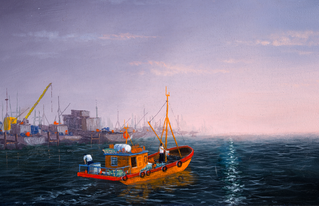
The fourth movement, which is nearly as long as the first three put together, is really a cantata in its own right. The work is part symphony, part cantata – the first three movements are more symphonic in form, with the chorus/semi-chorus, two soloists and orchestra being given an equal share in carrying out the musical ideas, although the balance between them changes throughout.

The metrical freedom and visionary qualities of his poetry and his humanist outlook made Whitman a popular choice for composers at the beginning of the twentieth century: Delius, Holst and Vaughan Williams all set his verse to music.Ĭonsidering Vaughan Williams’s interest in song and his life-long connection to choirs and choir festivals, it is no surprise that his first symphony should be a choral symphony. But a great deal of inspiration came to him by way of the spiritual mysticism of the American poet Walt Whitman. The pronounced atheism of his youth, which would later mellow into agnosticism, did not prevent him from composing sacred music, including a setting of the Mass. Vaughan Williams added several original compositions to the collection, amongst them ‘Come Down, O Love Divine’, also called ‘Down Ampney’ after his birthplace. Himself in choral music from the Tudor and Elizabethan period. The distinctly English musical idiom that he helped to develop was also shaped by his work editing a new version of The English Hymnal (1906) for which he immersed In the early years of the twentieth century Vaughan Williams began to collect folk songs from around the British Isles, which would have a profound influence on his compositions. Vaughan Williams married Adeline Fisher in 1897, and together they travelled to Berlin where the young composer studied It was here that he met Gustav Holst who became his closest friend, colleague, critic and inspiration.


In 1895 he re-entered the RCM to study with Charles Villiers Stanford. His weekly lessons with Hubert Parry in London continued during his time at Trinity College Cambridge where he read both history and music. Ralph Vaughan Williams’s musical talent was recognised at Charterhouse School which he left early to study composition at the Royal College of Music. Text taken from poems by Walt Whitman (1819–1892) For soprano and baritone soloists, chorus, semi-chorus and orchestra


 0 kommentar(er)
0 kommentar(er)
